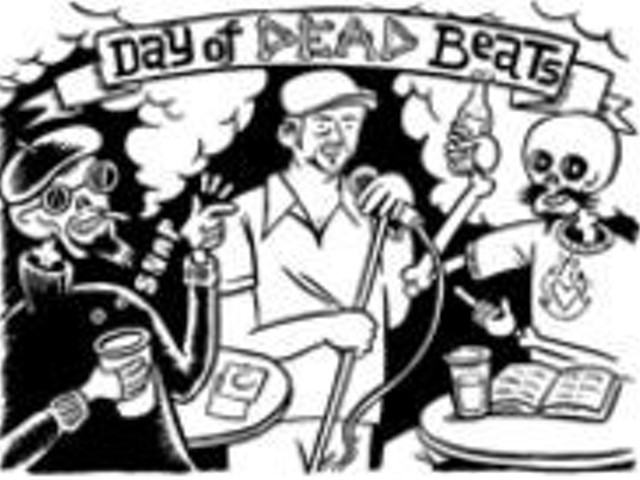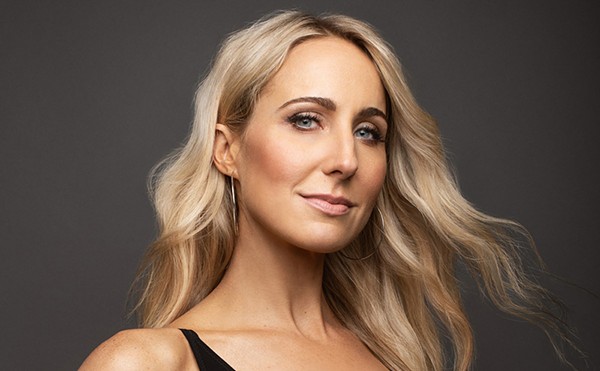Dennis Brown: Is it fair to say that Wicked is your baby and that you came up with the idea for the show?
Stephen Schwartz: Yes, that's true.
What the hell did you see in that overwritten novel that you thought would make a musical?
It happened like this. I found myself on a snorkeling trip in Hawaii with the folk singer Holly Near. On the boat she said, "I'm reading this interesting novel called Wicked about the Wicked Witch of the West." As soon as she said that, I thought it was a great idea. That Rosencrantz and Guildenstern approach of taking a familiar story and looking at it from another point of view I found compelling.
Even before you opened the novel?
Before I opened the novel. When I finally read the book, there was much that I thought was, for want of a better word, incorporatable into a musical. Then there were other aspects where I felt that I might want to go a slightly different way. But I do feel that the basic tone of the novel is honored in the musical. When I went to meet with Gregory to ask him for the rights, he was concerned that we might turn his story into fluff. I assured him that we had no intention of abandoning his themes.
What are those themes?
The basic idea of the novel, it seems to me, and of the musical, is that definitions of good and evil are complicated. In America we tend to slap labels onto things. One person, or even a nation, is good; another person or nation is evil. But that's not the way life works. Life is not a world of white hats and black hats. Then too, there is a theme of how a friendship can affect lives. At the core of the musical is the relationship between these two girls, Galinda and Elphaba. Though that's not the core of the novel, it's suggested in the novel and we picked up on it.
After you obtained the rights, how long was it before you started writing music?
Winnie Holzman [who wrote the libretto] and I spent about a year trying to get an outline of the show, working on the structure, working on the very challenge that you alluded to earlier, which was the difficulty of translating this novel to musical theater. How are we going to tell the story? And what story are we going to tell? During that year I made some scribbles to myself about musical sounds. But it was at least nine months into that process before I started to write.
What song did you write first?
This was unusual for me, because I usually don't start with the opening number. But in this instance I did. It was a version of "No One Mourns the Wicked." Though there were many alterations to that piece during the development of the show, the basic tune never changed.
Did you envision that booming chord that opens the evening?
That's the very first thing I wrote.
What song did you write last?
"Dancing Through Life," which replaced a song in the San Francisco tryout called "Which Way Is the Party?" That song had been written before we cast Norbert Leo Butz—
Who's from St. Louis, by the way.
I didn't know that, but he is amazingly talented. So I needed to write something that fit Norbert better.
Did you leave San Francisco knowing that you had a shot at a Broadway hit?
Within a week in San Francisco, we knew we had a real shot. But there was a lot of work to do, and we worked to the very last minute prior to the Broadway opening. If we had simply picked up the San Francisco show and plunked it down in New York, I don't think we'd have had a hit. Yet in San Francisco we knew we had something that spoke to audiences and that people wanted to see.
So the show did not come into New York as a sure thing.
No, no, certainly not. It happened, and we could stand back and watch it happen.
And it's still happening, isn't it? There's a sense that Wicked hasn't even peaked yet.
No, we're still growing.
It would seem that you've come up with a review-proof show. It doesn't make any difference what the critics write; audiences can't get enough of it.
I try to avoid the word "old-fashioned," but Wicked is a throwback to an era of book musicals with dialogue and characters and plot. You know, it's much harder to write that kind of musical than to write a musical that makes fun of musicals, which is the sort of show that's in vogue now. What the critics love these days are shows like Spamalot and The Producers and Urinetown, whose songs satirize types of musical-theater songs. But to me Wicked is a flat-out Broadway musical, trying to tell a story through songs.
We certainly got our share of very good reviews. In fact, the preponderance has been extremely good. But as it turns out, it didn't really matter what the critics wrote, because people went, and they had an experience, and they told their friends to go. We've been selling out for two years now, yet to this day I don't think the New York critics understand why Wicked is a hit. I think they think it's a hit because it has a good poster or because it looks like a lot of money got spent on the set. If that were the case, Dance of the Vampires would still be running. [Vampires closed in 2003 after 56 performances.]
You don't like to read reviews.
It's not that I don't like to read them; I don't read them.
So let's forget about reading reviews. But what if you were writing one? If you were reviewing Wicked, what would you say?
Well, [laughs] I'm sort of prejudiced.
That's OK. Reviewing isn't about objectivity; it's about informed subjectivity. What are the strong points of Wicked?
I think it's really smart. What I'm proudest of is that I think it's extremely intelligent and very well structured. It takes a complicated and nuanced story, which is always difficult to do in a musical, and a big plot where a lot of things happen, and tells that story clearly and entertainingly and ultimately, I think, movingly. What else do you want from a musical? I'm not saying it's perfect, but I think it is quite successful at achieving its goals.
How has Wicked changed your life?
I'm not sure that it has changed my life, but it has definitely changed my attitudes about work. It has strengthened my resolve to focus on projects that interest me, without worrying about their commercial potential or visibility. I have renewed confidence to follow my own vision, to trust myself, and to believe that if I can do relatively well the things that I set out to do, there will be an audience for them.





